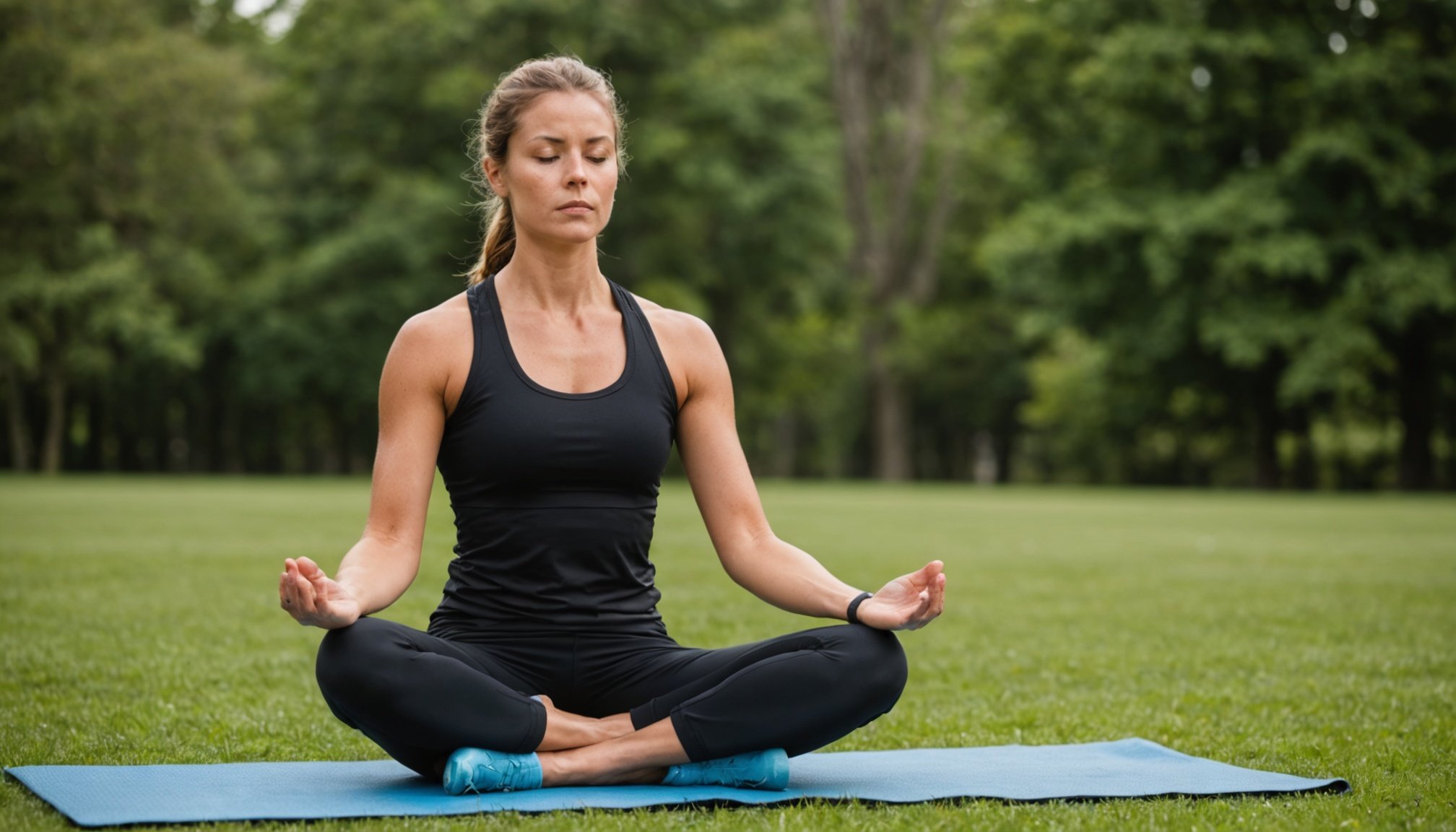In the fast-paced world of professional sports, where every millisecond counts and the pressure to perform is relentless, athletes constantly seek new ways to sharpen their competitive edge. Beyond the physical training, which is paramount, lies an often underutilized tool: meditation. This ancient practice, with its roots in spirituality, has transcended into the realm of high-performance sports, offering athletes a sanctuary of mental clarity and resilience. As we delve into this topic, we reveal how meditation can become a pivotal component of an athlete’s arsenal in high-pressure competitions.
Enhancing Focus and Concentration
In the heart of competition, focus can distinguish between victory and defeat. Athletes, especially in high-pressure environments, must channel their energy and concentration towards the task at hand. Meditation offers a pathway to enhance this focus by training the mind to maintain attention over extended periods.
Topic to read : What are the most common dietary mistakes made by amateur athletes, and how can they be avoided?
Meditation practices, such as mindfulness, require one to be fully present in the moment, acknowledging thoughts and then consciously letting them go. As athletes engage in mindfulness exercises, they cultivate an internal environment where distractions are minimized, and concentration is heightened. This ability to hone in on the present allows athletes to remain undeterred by the external chaos of competition.
Moreover, meditation aids in developing what sports psychologists refer to as ‘flow state’—a mental state where athletes experience complete immersion and optimal performance. This elusive state often occurs when both the mind and body are aligned, a synergy facilitated through consistent meditation practices. As athletes train their minds alongside their bodies, they create a harmonious balance, essential for achieving peak performance.
Also to discover : How can team dynamics affect performance in team sports, and what can be done to enhance it?
In conclusion, incorporating meditation into an athlete’s routine empowers them to cultivate a sharpened focus, transforming how they approach competitions. Through disciplined practice, they learn to navigate the intricacies of their sports with unwavering concentration, often leading to enhanced performance and consistent results.
Reducing Stress and Anxiety
The world of competitive sports is replete with stressors, from the expectations of fans to the pressures athletes place on themselves. These stressors can culminate in performance anxiety, a common barrier to success. Meditation offers a potent remedy, equipping athletes with tools to manage stress and reduce anxiety effectively.
Meditation promotes the regulation of the “fight or flight” response. By engaging in deep breathing exercises and focusing techniques, athletes can activate the body’s relaxation response. This physiological change leads to a reduction in cortisol levels, the hormone associated with stress. As stress diminishes, athletes often find themselves more composed and less susceptible to the adverse effects of anxiety.
Furthermore, meditation encourages a mindset shift, transforming how athletes perceive stress. Instead of viewing it as a negative force to be battled, meditation helps athletes reinterpret stress as a challenge to be embraced. This cognitive restructuring fosters resilience, allowing athletes to face high-pressure situations with a calm and collected demeanor.
Ultimately, meditation offers a sanctuary from the unyielding demands of competitive sports. By reducing stress and anxiety, athletes can maintain their mental health, ensuring a sustainable and fulfilling career. As they master these mental strategies, they often find themselves not only performing better but also enjoying the sport they love with renewed vigor.
Improving Emotional Regulation
Emotions are an intrinsic part of athletics, often driving athletes to push their limits. However, when unchecked, emotions can derail focus and performance. Meditation emerges as a key player in helping athletes master emotional regulation, an essential skill in high-pressure competitions.
Through meditation, athletes learn to observe their emotions objectively, gaining insights into their emotional triggers and responses. This awareness allows them to detach from negative emotions, such as frustration or anger, and respond to situations with greater equanimity. Instead of reacting impulsively, they learn to pause, reflect, and choose the most constructive course of action.
Meditation also fosters the development of compassion, both towards oneself and others. Athletes often face intense criticism and self-doubt, which can impair their self-esteem. By cultivating self-compassion through meditation, athletes become more accepting of their shortcomings, viewing them as opportunities for growth rather than failures.
Moreover, as athletes train in emotional regulation, they build mental resilience—the ability to bounce back from setbacks and maintain composure under pressure. This resilience is crucial in high-stakes competitions where emotions run high and the margin for error is slim.
In essence, meditation empowers athletes to manage their emotional landscape, transforming how they react to and recover from the emotional ebbs and flows of competition. As they anchor themselves in emotional stability, they perform with greater consistency and confidence, often leading to success.
Enhancing Recovery and Overall Wellbeing
Recovery is a fundamental aspect of athletic performance, often dictating an athlete’s longevity and success. While physical recovery practices are well-established, the role of mental recovery is increasingly recognized. Meditation serves as a powerful ally in enhancing recovery and promoting overall wellbeing.
When athletes engage in meditation, they activate the parasympathetic nervous system, which plays a crucial role in recovery and repair. This shift allows for decreased heart rate, lower blood pressure, and relaxation of muscles—conditions ideal for physical recovery. As athletes recover more efficiently, they are better prepared for future competitions, reducing the risk of injury.
Beyond physical recovery, meditation nurtures mental recovery. The practice allows athletes to disconnect from the stressors of competition, offering a mental retreat where the mind can rest and rejuvenate. This mental rest is vital for maintaining cognitive function and emotional balance, especially in grueling seasons.
Additionally, meditation cultivates a holistic sense of wellbeing. Through regular practice, athletes often experience improvements in sleep quality, mood, and overall life satisfaction. This comprehensive enhancement of wellbeing not only benefits their sports performance but also enriches their personal lives.
In conclusion, meditation is not merely a tool for mental clarity but a multifaceted practice that supports every aspect of an athlete’s wellbeing. By enhancing recovery and promoting a balanced lifestyle, meditation ensures that athletes can sustain peak performance throughout their careers.
As the landscape of competitive sports continues to evolve, athletes must adapt to new challenges and innovations. Meditation, with its profound benefits, stands as a valuable resource for those competing in high-pressure environments. By incorporating meditation into their routines, athletes can enhance focus, reduce stress, regulate emotions, and promote overall wellbeing.
The practice offers much more than a temporary solution; it provides a sustainable path to peak performance, fostering both mental and physical resilience. As athletes embrace meditation, they not only improve their competitive edge but also embark on a journey of personal growth and fulfillment.











